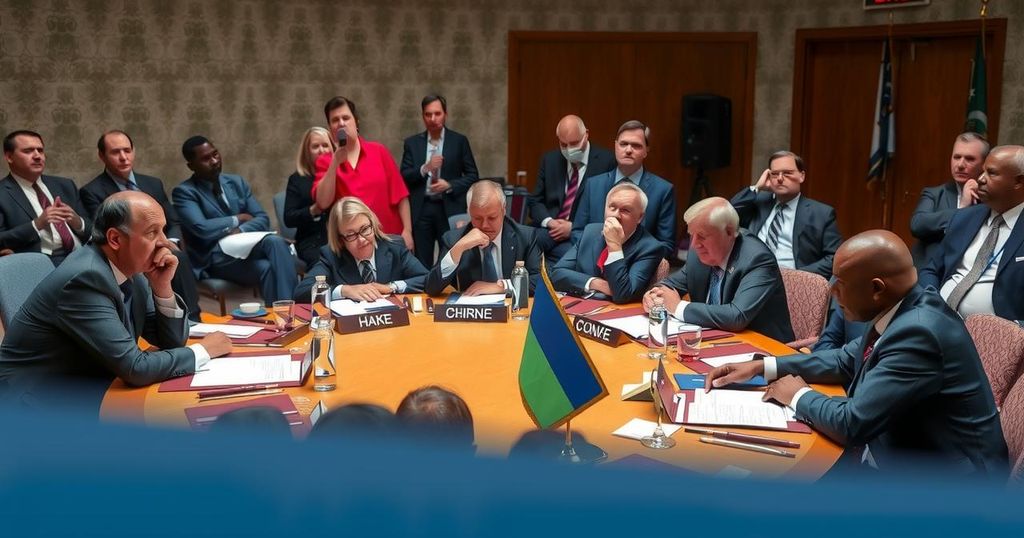UN Security Council Advocates for an End to Violence in Eastern DRC

The UN Security Council discussed escalating violence in eastern DRC led by groups like M23 and ADF. UN Special Representative Bintou Keita stressed the need for international support for peace mediation, highlighted political tensions, and acknowledged the severe humanitarian crisis in the region. The involvement of women in peace advocacy was also emphasized, marking the necessity for collaborative efforts to achieve lasting stability.
On Monday, the United Nations Security Council convened to discuss the ongoing violence in eastern Democratic Republic of the Congo (DRC), with a report presented by the UN Special Representative for the DRC, Bintou Keita. She highlighted critical issues, including escalating insecurity linked to armed groups such as the ADF, M23, CODECO, and Zaïre. Keita emphasized the need for both international and regional support for mediation efforts aimed at achieving lasting peace, particularly through the Luanda process.
The forthcoming summit on December 15, which will include leaders from Angola, the DRC, and Rwanda, provides an opportunity to showcase the progress made in addressing regional conflicts. However, Keita warned of the potential instability stemming from political disagreements, particularly regarding constitutional reforms, urging stakeholders to collaborate to maintain stability in the DRC.
Updates on security in North Kivu and Ituri provinces indicate that violence remains a grave concern, with the M23 expanding its territorial control and the ADF leading to significant civilian casualties. Keita noted the importance of addressing the underlying issues of illegal resource exploitation that frequently correlate with violence in the region.
The humanitarian situation continues to deteriorate, exacerbated by climate change and armed conflict, displacing approximately 6.4 million people. Despite these challenges, Keita has observed improvements in humanitarian funding and efforts to tackle gender-based violence, which remains alarmingly high, particularly in North Kivu.
In conclusion, Keita reiterated the crucial involvement of women and the disabled in advocating for peace, highlighting their shared call for a stable and dignified return to their homes and communities. She expressed optimism about ongoing international support and collaboration, which are vital for the DRC’s path toward enduring peace.
The Democratic Republic of the Congo has faced decades of conflict, particularly in the eastern regions like North Kivu and Ituri, where armed groups vie for control and exploit the abundant natural resources. The involvement of regional powers, such as Angola and Rwanda, is pivotal in mediating these conflicts. Recent political developments within the DRC, alongside humanitarian crises due to displacement and violence, necessitate immediate global attention and local cooperation to foster stability and promote peace on the ground.
The ongoing discourse within the United Nations Security Council underscores the pressing necessity to address the multifaceted violence in eastern DRC. The commitment to peace through cooperative regional efforts, addressing political tensions, and ensuring the safety of women and vulnerable communities is essential for laying the groundwork for stable governance. As the DRC continues to contend with armed conflict and humanitarian crises, sustaining international involvement and local advocacy remains paramount to achieving long-term peace.
Original Source: news.un.org








